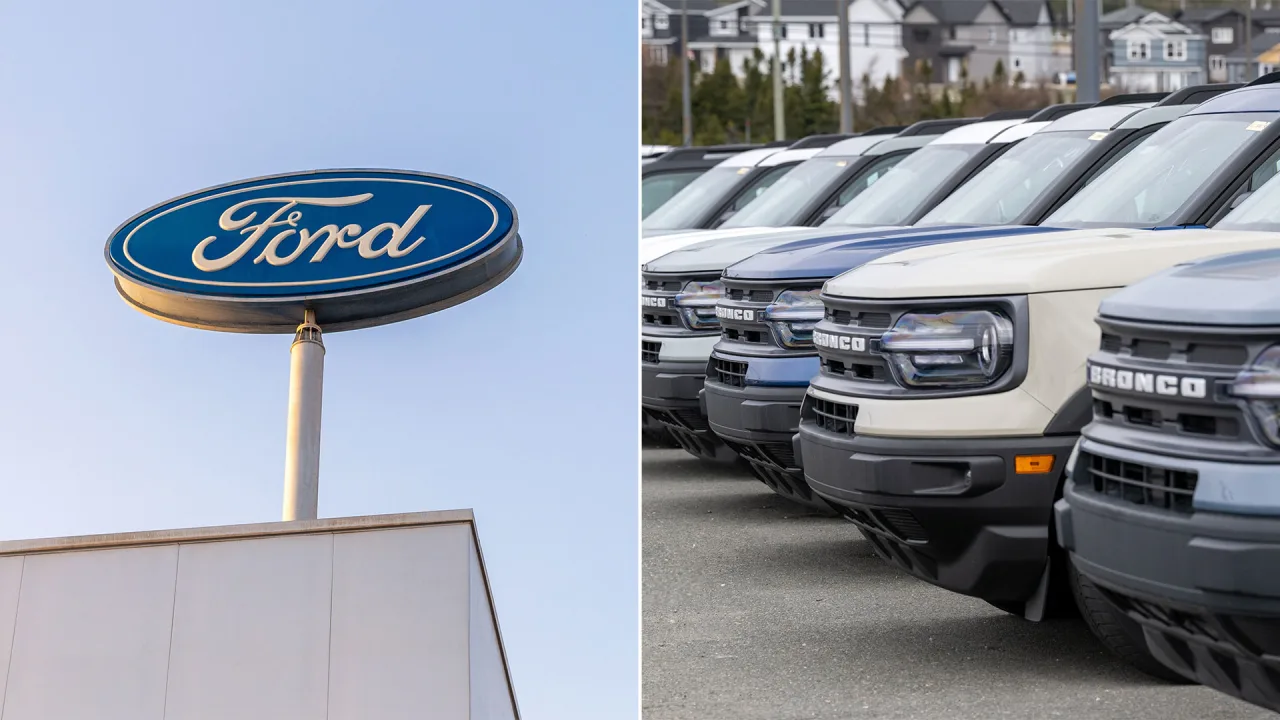Ford’s recall problem keeps getting worse—and this one could start fires

Ford is setting records in 2025, but not in a good way. The auto maker has already blown by the previous record for the most safety recalls in a calendar year, and now another major round of recalls is calling the brand’s reliability into question.
On Wednesday, the National Highway Traffic Safety Administration (NHTSA) announced that Ford will recall 694,271 crossover SUVs over a fuel leak problem that could cause a fire under the hood. Ford’s 2021-2024 Bronco Sport and 2020-2022 Escape models running 1.5 liter engines were named over concerns that their fuel injectors could crack, leaking fuel into the engine compartment where it could then catch fire.
Ongoing concerns
The latest recall is the result of a year-long investigation, and the company told Reuters that it will cost an estimated $570 million for Ford to resolve, a loss that would be reflected in its second quarter earnings report. Recalls in 2022 and 2024 addressed the same concerns with software updates but didn’t swap out the fuel injectors. Ford shares dipped on the news Wednesday.
The NHTSA opened a query into the issue in 2024, prompting the company to reevaluate its recall plan and eventually leading to the broader recall to deal with the injectors themselves, which have been linked to fires even in vehicles with the updated software, Reuters reports. At the time of the prior recalls, Ford said that it was confident the lesser fixes would “prevent the failure from occurring and protect the customer.”
To deal with a separate safety concern, Ford recalled more than 850,000 vehicles earlier in July over worries about the low-pressure fuel pumps in some models, including the Bronco, Explorer and Lincoln Aviator. The recall notice noted concerns that a loss of fuel pressure and flow could dangerously lead affected vehicles to stall out. Those worries were especially pronounced in warm weather and “low fuel conditions, and reduced fuel pump internal clearances that result in an increase of internal friction and sensitivity to vapor lock.”
Why so many recalls?
While going public with vehicle problems certainly makes for bad headlines, Ford Chief Operating Officer Kumar Galhotra defended the company’s unprecedented flurry of recalls in comments to the Wall Street Journal. “The increase in recalls reflects our intensive strategy to quickly find and fix any hardware and software issues and go the extra mile to protect customers,” Galhotra said.
Last year, Ford CEO Jim Farley said that the company hopes to trim its recall track record by keeping redesigned models for up to six weeks for additional extensive quality checks. That move was expected to dent its business in the short term, Farley warned, but the long-term benefits would balance out.
“What we’re going to see long term is fewer recalls and lower warranty costs because of this new process,” Farley said in a 2024 earnings call. Since joining Ford in 2020 after two decades at Toyota – a car brand synonymous with reliability – Farley has reportedly crusaded to up the auto maker’s quality game.
Ford test drove the new process with a redesigned version of its best-selling model, the F-150 pickup. After holding onto 60,000 fully built vehicles for weeks, the company rooted out issues that would have led to 12 recalls, including assembly problems and software bugs. The company followed suit with updated versions of the Explorer, Bronco and Maverick
“We are somewhere in the middle of the pack and obviously we’re not happy with being in the middle of the pack,” Galhotra told Bloomberg last year. “The goal is to move very rapidly to catch Toyota.”
If all goes as planned, Ford’s new process will reduce recalls for new models as they hit the streets. Ford vehicles already on the road won’t benefit from the additional testing period and are still leading to costly recalls, as recent headlines make clear.
Vehicle recalls are on the rise in recent years. Between 2013 and 2023, recalls shot up by 43%, according to data from the NHTSA. The increased technological complexity in modern cars means more that can go wrong, but auto makers are also being more proactive in recalling vehicles over potential problems before they can become serious down the road.
Even with recalls rising across the board, Ford still stands out. Since 2020, the company has held the ignominious title for the most-recalled car manufacturer in the U.S.
What's Your Reaction?
 Like
0
Like
0
 Dislike
0
Dislike
0
 Love
0
Love
0
 Funny
0
Funny
0
 Angry
0
Angry
0
 Sad
0
Sad
0
 Wow
0
Wow
0























































![Walter Boys Season 2 Finale Delivers Not One, But Two Cliffhangers — Is [Spoiler] Dead?](https://tvline.com/wp-content/uploads/2025/08/my-life-of-the-wlater-boys-season-2-finale_33d3b0.jpg?#)







































